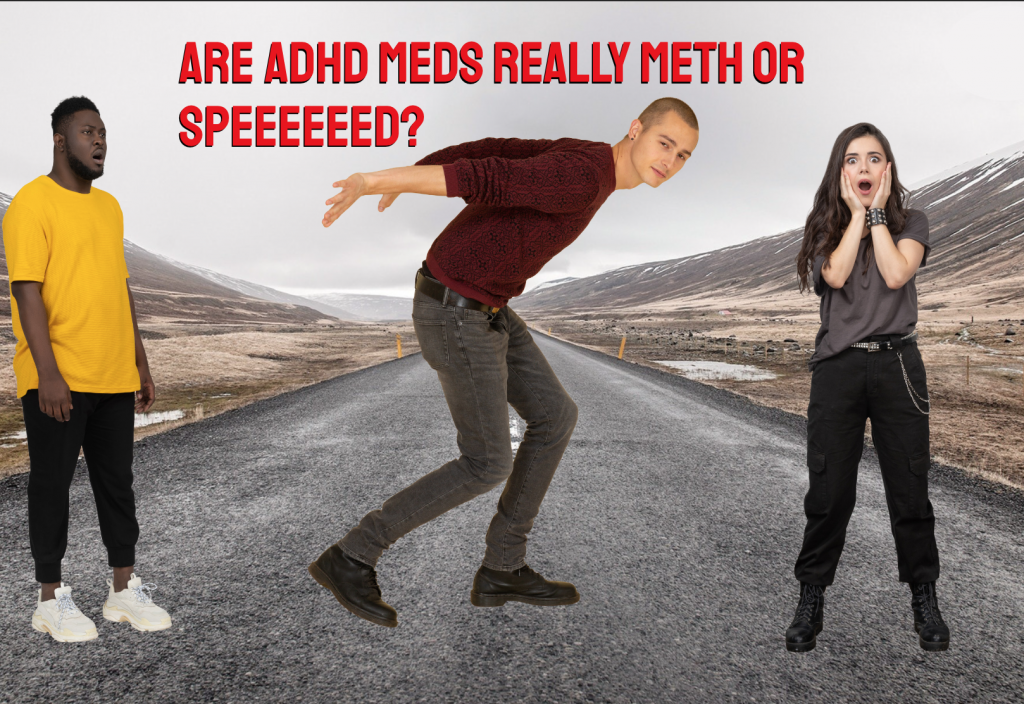First of all, not all ADHD meds are stimulants; the same classification as meth or speed. For various reasons your prescribing professional might recommend a non-stimulant medication like Strattera or Guanfacine.
In most cases, however, stimulants are the first option because studies show that they provide the greatest benefit for the majority of people. The active chemical ingredients in the most popular ADHD meds are dextroamphetamine-amphetamine (Adderall), lisdexamfetamine (Vyvanse), and methylphenidate (Ritalin, Concerta).
Desoxyn is the prescription name of medical methamphetamine, but it is not commonly prescribed because methamphetamine is potentially much more addictive due to its greater ability to enter the brain.
Any of these drugs could be characterized with the general label “speed” because they are all stimulants. Caffeine is a stimulant too. Stimulants affect our central nervous system and can have side-effects like:
For lower doses
- euphoria
- heightened feelings of wellbeing
- increased heart rate and blood pressure
- increased alertness
- talkativeness
- reduced appetite
Higher doses may result in:
- anxiety
- tension
- increased body temperature
- nausea
- tremor
- seizures
- coma
- death
These lists of side-effects can be scary, but that’s why you seek the guidance of a healthcare professional for this aspect of treatment. The truth is, stimulants are a fairly well-understood and low-risk type of medication. Follow their advice and you’ll be OK.
The Stigmatization of Medicine
Unfortunately, more and more people are abusing ADHD medication without a prescription because these drugs stimulate the brain, increasing alertness and sometimes creating a euphoric feeling like a high.
Adderall and Ritalin, have gained the nickname “study drugs” because they allow students to focus and stay alert for long nights of cramming (or partying). This creates a black market for ADHD meds.
The consequences of recreational drug-seeking behavior leads government regulators to restrict access to these medications. Unfortunately, shockwaves from the deadly opioid crisis have validated this frenzy toward clampdown. This contributes to the stigmatization of people with ADHD who are simply seeking treatment.
Can you get addicted to ADHD medication? Yes.
While you can become addicted to ADHD medication, studies show that a properly medicated person is less likely to self-medicate with narcotics and become addicted.
Stimulants are typically the fastest, most effective, and easiest treatment to understand, therefore the benefits usually outweigh the risks.
Conclusion
ADHD medication is a tool that can help or hurt you. Hopefully you won’t need it forever and you shouldn’t rely on it to magically solve your problems.
In any case, don’t let stigma, misinformation, and prejudiced opinions about this topic sour your relationship with this useful tool. Ask questions and find what’s right for you. ADHD medication is not a drug. Trust your doctor, follow their advice, and keep your medication to yourself.



